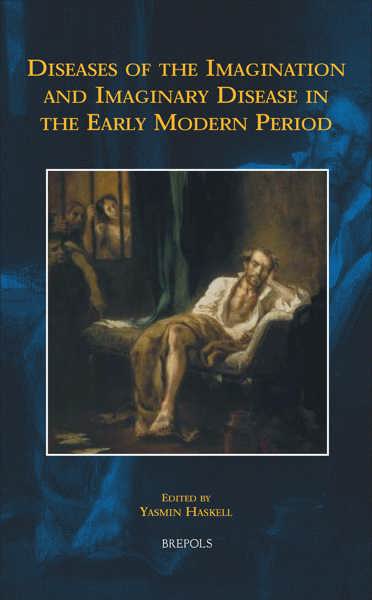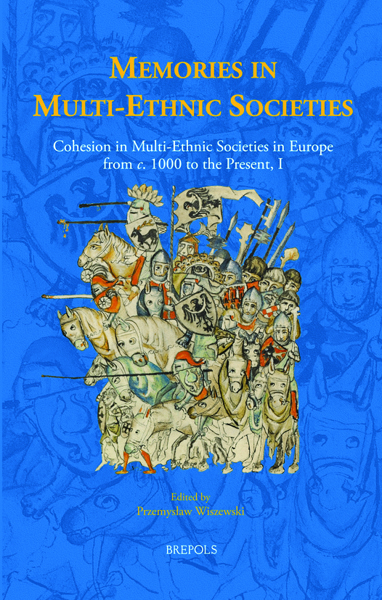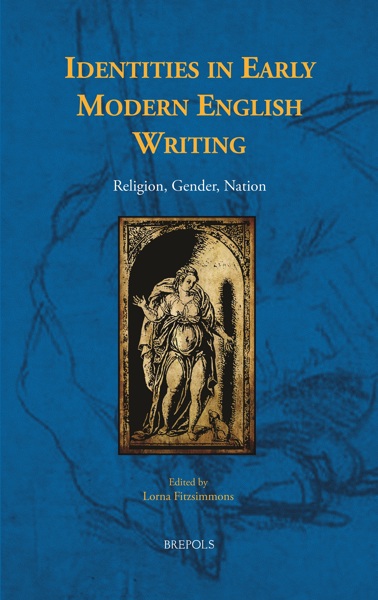
Memories in Multi-Ethnic Societies
Cohesion in Multi-Ethnic Societies in Europe from c. 1000 to the Present, I
Przemyslaw Wiszewski (ed)
- Pages: 424 p.
- Size:156 x 234 mm
- Illustrations:21 b/w, 6 maps b/w
- Language(s):English
- Publication Year:2020
- € 115,00 EXCL. VAT RETAIL PRICE
- ISBN: 978-2-503-58890-2
- Hardback
- Available
- € 115,00 EXCL. VAT RETAIL PRICE
- ISBN: 978-2-503-58891-9
- E-book
- Available
Explores the cohesive function of memory, traditions, and identity politics of multi-ethnic societies in early Europe.
“By opening a series with obvious contemporary cultural relevance, this volume reflects a welcome scholarly embrace of nuanced approaches to ethnicity in Europe’s history, historiography, and historical politics.” (Nicholas D. Brodie, in Parergon, 38/2, 2021, p. 270)
Przemysław Wiszewski is a Professor of Medieval and Early Modern History at the Institute of History, University of Wrocław, with a special interest in medieval and early modern history of social relations and values structures within medieval societies and regional history.
The three-volume project Cohesion in Multi-Ethnic Societies in Europe from c. 1000 to the Present explores and seeks to find solutions to a crucial problem facing contemporary Europe: in what circumstances can different ethnic groups co-operate for the common good? They apparently did so in the past, combining to form political societies, medieval and early modern duchies, kingdoms, and empires. But did they maintain their ethnic traditions in this process? Did they pass on elements of their cultural memory when they were not in a dominant position in a given polity?
This first volume of the project focuses on the cohesive function of memory, tradition, and identity politics in multi-ethnic societies. Featuring chapters written by authors from Southern, Central, and Eastern Europe, it presents sixteen case studies of the co-habitation or co-operation of different ethnic groups from the so-called ‘peripheries’ of medieval and early modern Europe that resulted in peaceful acculturation or the birth of a new identity on the basis of multi-ethnic political society. The volume suggests that ethnic identities were consciously accepted as one among various forms of identity that were possessed by social groups: they were rarely absolutized, and members of these groups preferred pragmatic approaches in their relations with other ethnicities.
List of Illustrations
Preface: Cohesion of Multi-Ethnic Societies in Medieval and Early Modern Europe — PRZEMYSŁAW WISZEWSKI
Introduction: Multi-Ethnicity and Memory in Medieval and Modern Societies — PRZEMYSŁAW WISZEWSKI
Part I: Opening a Perspective: Ethnic Diversity and Visions of the Past
The Meaning of the Past and the Creation of Early Medieval Ethnic Communities: The Case of Carolingian Italy — ANETA PIENIĄDZ
Cohesion and Conflict between Ethnic Groups in Medieval Hungary: The Thirteenth Century Gestas of Master P. and Simon of Kéza — DÁNIEL BAGI
Multi-Ethnicity and Memory in Medieval Transylvania — COSMIN POPA-GORJANU
Religion and Ethnicity in the Humanist Historiography of the Czech Region — JAN ZDICHYNEC
The Crown of Aragon on the Border: From Conflict to an Ideology of Cohesion in a Multi-Ethnic Society — ISABEL GRIFOLL
Multi-Ethnicity or the Network of Local and Regional Identities in Silesian Medieval Historiography — PRZEMYSŁAW WISZEWSKI
The Portuguese Experience of Multi-Ethnic Sociability in the Atlantic in the Fifteenth Century and the Problem of Implicit Understanding — LUÍS ADÃO DA FONSECA
Part II: Ethnic Groups within One Political Body
Multi-Ethnic Portuguese Society in the Reign of João I (1385–1433): From Administrative Practices to Official Royal Narrative — PAULA PINTO COSTA AND MARIA CRISTINA PIMENTA
The Creation and Administration of a Multi-Ethnic State: The Case of the Grand Duchy of Lithuania — JURGITA ŠIAUČIŪNAITĖ-VERBICKIENĖ
Myth as a Means of Coexistence: The Karaite Community of Lithuania from the Eighteenth to the Twentieth Centuries — DOVILE TROSKOVAITE
Portraying the People and Lands of Eastern Europe in Polish Writings up to the Union of Lublin (1569) — ANDRZEJ PLESZCZYŃSKI
Value Orientation and the Image of the Orbis Gentium in Medieval East European Societies — ALEKSANDR MUSIN
Part III: The Interethnic Exchange of Ideas and the Building of Identities
Catalans and Sardinians: Opposing Identity Discourses and Fluctuating Political Relationships from the Twelfth to the Fifteenth Centuries — LUCIANO GALLINARI
Catalan Identity Discourse in the Late Medieval Mediterranean: Creation and Contrast with Neighbouring Identities — FLOCEL SABATÉ
Three Languages, One Town: Linguistic Aspects of Written Communication between the King and Bohemian Royal Towns in the Fourteenth and Fifteenth Centuries — TOMÁŠ VELIČKA
Part IV: Multi-Ethnicity in the Twentieth Century
Visions of the Past and their Role in Shaping the Polish American Identity, as Seen in Ethnic Festivities — JOANNA WOJDON
***
Index




